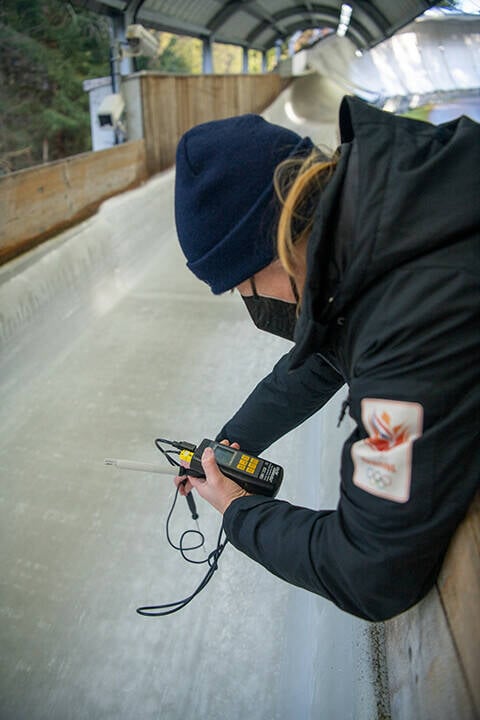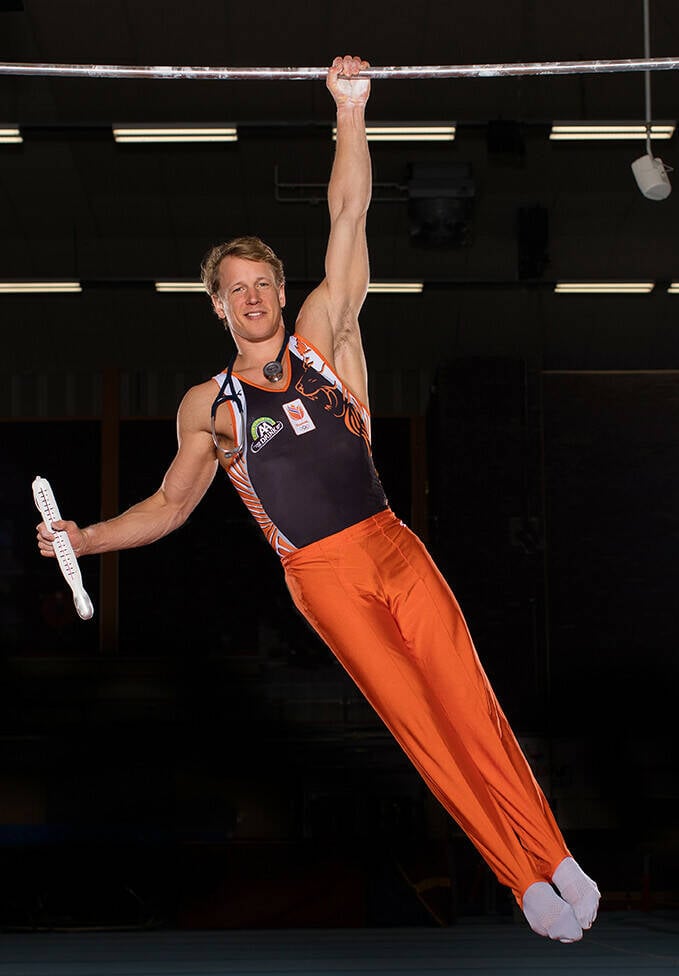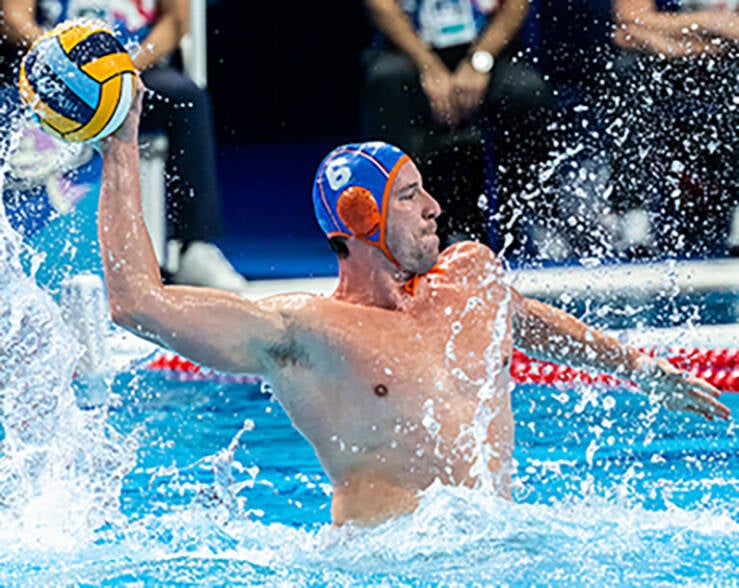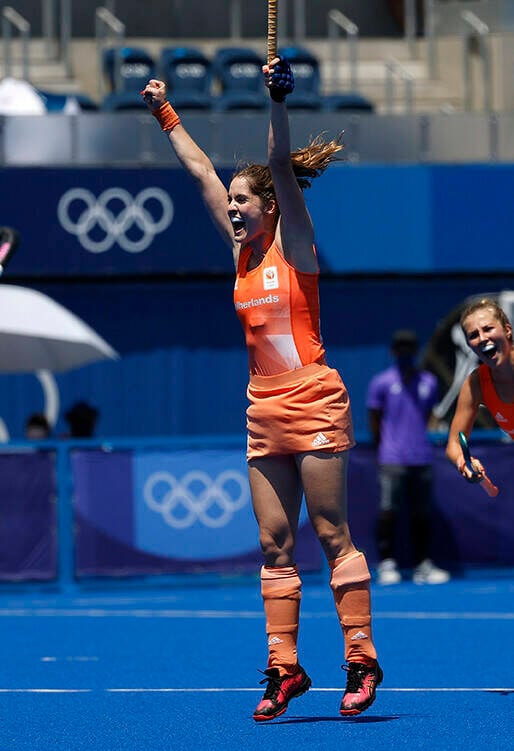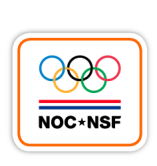

Elite sport is a temporary profession. There comes a moment, scheduled or unforeseen, when athletes move on to their next career step. We support them to this end with individual tailor-made programs, such as career counseling, and various group programs. So as to ensure a smooth transition to a next career step.
“I want to learn, grow and gain knowledge”
Robin Lindhout
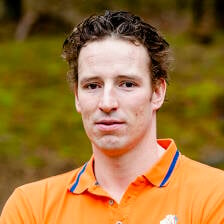
“Give yourself some time to find your purpose”
Marloes Keetels
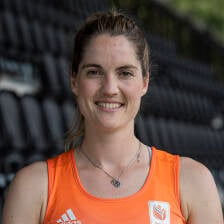
“Actually doing something for people is rewarding”
Epke Zonderland
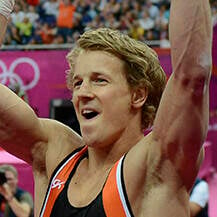
“I don’t like to sit on my hands, and I want to develop as a person”
Joska le Conté
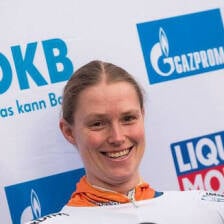
the next career step
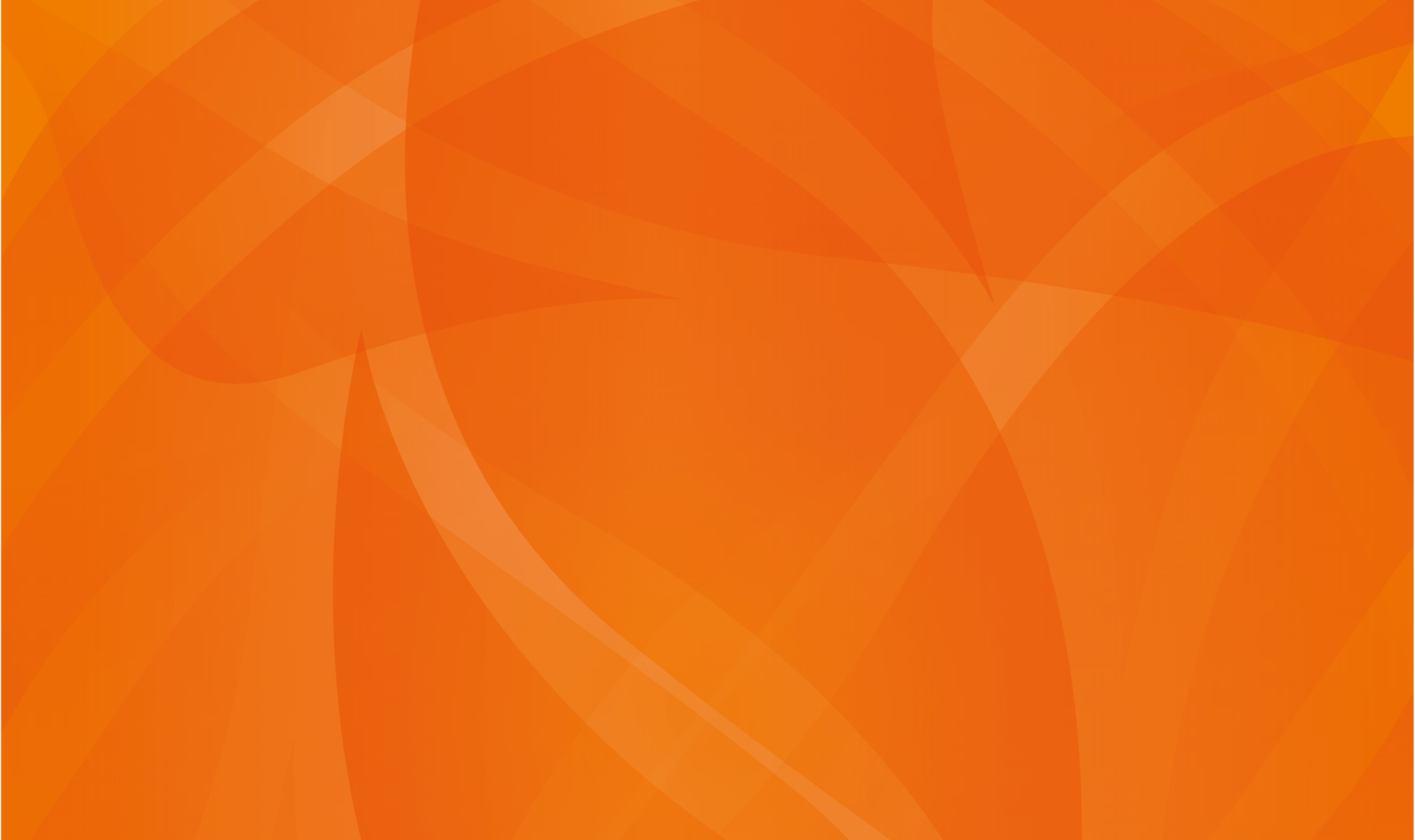

“We shared a pizza together with the silver medalist. That was it”
the next career step
Beijing was special. My first Olympic Games. As an athlete, I have not been able to qualify for the Olympics. Now, I was Kimberley Bos’s coach. And of course, you had to face all kinds of COVID-19 precautionary measures. We ate together with the four of us in the Olympic village, at a table which was divided into four parts with transparent sheets. That was not that nice, really, but we did not suffer from COVID-19 either. Let’s just say that the measures have been fruitful. I am very careful myself as well. I went into self-quarantine two weeks before the Games and I did not leave the house anymore. I had home delivery for my groceries. I wanted to avoid running the risk that I would be infected. For myself, but even more for Kimberley and the other athletes. The result was that my boyfriend also had to go into self-quarantine. The choice was: either we don’t see each other or we go into self-quarantine. There was no other option.
It is great to be part of the Olympics as a coach, though it was not quite different from other games. What you did notice, is that everyone was just a bit more tense. And you saw that some athletes were rising above themselves. That is unique for the Olympic Games.
Kimberley performed well. The first run was disappointing. At the same time, it was great to see how she coped. We knew that she could do better. Then it is important to stay calm. We had another look at her run and saw where it went wrong. Then you know: Correct your mistake and improve your result. That’s how it went. After her second run, she had a view of the medals again. It is a perfect track in this respect. It is a track that was just new. You have to try and find out things which causes the differences in the results. The athlete who came in first after the first run, did not earn a medal after all.
When we had earned the bronze medal – the first Dutch skeleton medal ever during the Olympics – we had a blast for just a few moments. I know that I was jumping for joy. Otherwise, we could not do much because of COVID-19. Celebrations with a party were not allowed. We returned to the Olympic village after the race, it was a race in the evening. We arrived in the middle of the night and shared a pizza with Jackie Narracott, who had won the silver medal. That was all. Perhaps we could do it all over again in 2026. We already earned bronze, the silver and gold medals are attractive. But it definitely won’t be easy. You don’t earn gold just like that. It’s also a technical sport. If someone introduces an innovation, then you could be lagging behind all at once. But if you innovate yourself, then you win by a score of 2-0. I am going to do everything it takes to make that happen.”
“I don’t like to sit on my hands, and I want to develop as a person”
Joska le Conté

“Actually doing something for people is rewarding”
Epke Zonderland

“I want to learn, grow and gain knowledge”
Robin Lindhout

“Give yourself some time to find your purpose”
Marloes Keetels



Joska le Conté


“Correct your mistake and improve your result”
“I had thought that I would miss it. Training, the races, the gym. That I would think, standing alongside the race track: Hey, I want to ride down myself. It was not that bad at all. Coaching is rewarding to me. It is great to elaborate on the question how someone can improve. And to see this improvement as well. As a coach, I am organizing and planning a lot. That suits me well. When I was active as an athlete, we did not always have enough means for all activities provided by the federation. So you had to arrange things by yourself, such as traveling. I went to team captain meetings myself as well. It was not ideal for me as an elite athlete, but I learned a lot from it. It is an asset for me now. Just like my experience as policy advisor with the Royal Dutch Motorcycle Association.
I started there upon completion of my studies via Goud op de Werkvloer (Gold at Work), a project that was launched by NOC*NSF (the Dutch Olympic Committee*Dutch Sport Federation), Randstad and Sport & Zaken (Sport & Business), so as to establish more positions with organizations that value elite sport for (former) elite athletes. I had completed my studies and I wanted to have a job in addition to training, with a sport federation. I started with the Royal Dutch Motorcycle Association. They had registered as an employer that values elite sport. Such an employer cares about you as an elite athlete. They understand that you cannot be present each day from nine to five. I had made arrangements that I could focus on skeleton during the winter season and that I would be working with the Association during the summer. In the meantime, I also completed a master’s degree in Management Science. I don’t like to sit on my hands and I want to develop as a person.


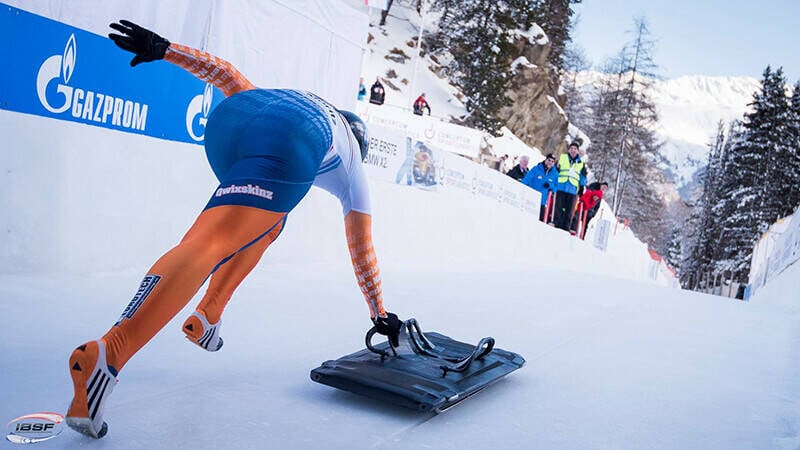
Joska le Conté became a Dutch champion in pole vault five times in several youth categories. But when she came into contact with the sliding sport, she exchanged the summer for the winter and she chose the skeleton. Riding her skeleton down the track, she was freaking fast. She did not fulfil her dream to make it to the Olympics by just an inch. She did succeed indeed as a coach and assisted Kimberley Bos on her way to bronze in Beijing.
“I don’t like to sit on my hands, and I want to develop as a person”


the next career step
“I don’t like to sit on my hands, and I want to develop as a person”
Joska le Conté

“Actually doing something for people is rewarding”
Epke Zonderland

“I want to learn, grow and gain knowledge”
Robin Lindhout

“Give yourself some time to find your purpose”
Marloes Keetels





“Participating in a large tournament as a sport physician is very appealing to me”
“If I worked less hours and took a longer time to finish, that was all right”
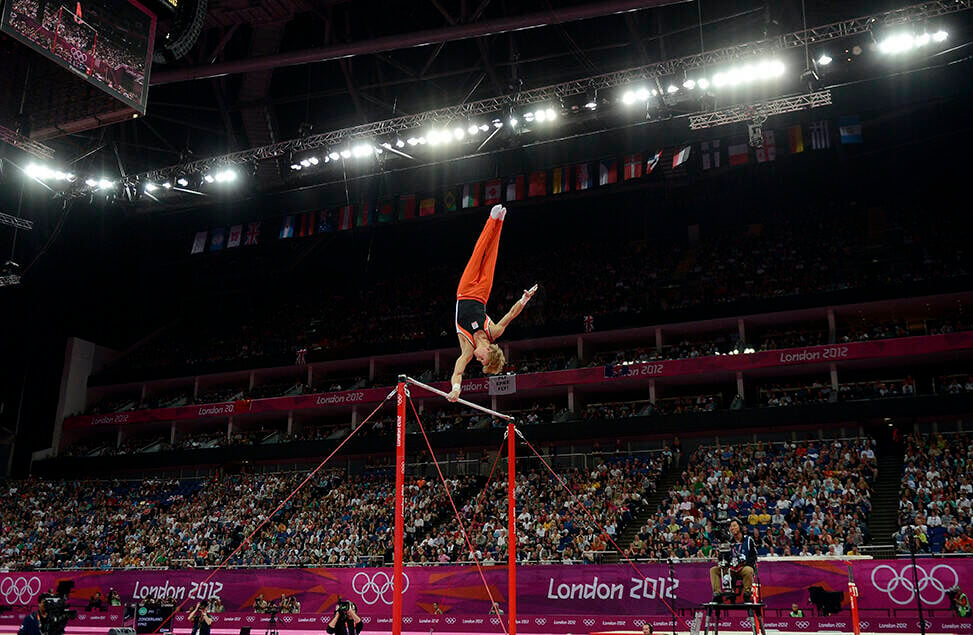


I did already have this conviction in choosing an academic program in addition to sport. It turned out to be the study of medicine. I actually wanted to mean something to people. I liked the enjoy of operating, working with your hands. I knew it was a difficult study in the combination with elite sport, because of the obligatory attendance and the many internships that you have. But there was no alternative. This is what I wanted. My days were fully booked: training, studying, training, studying, sleeping. I was involved in training for thirty hours a week easily. And another thirty hours with studying. I never considered it as cumbersome. I wanted to do this very much myself. You have so much energy at that age. You can handle a lot indeed. And it is all right as well if you make progress a bit slower than regular students.
In the end, I completed my studies in eleven years. I was most delayed with my clinical apprenticeships. Those were quite difficult to schedule in combination with elite sport. You are physically active with the clinical apprenticeships like you are with gymnastics. The combination is just a bit too much. Especially before important competitions and tournaments. Theory is just a matter of learning the study material, which was a much better combination with elite sport. At the same time, I have to add that I received a lot of understanding. Both from my study program and the physicians with whom I worked together. It was never an issue if I worked less hours and took a longer time to finish. They often observed my elite sport planning and they considered this in drafting the work schedules. That was marvelous.
In the end, I will not pursue a career as a surgeon. I am going to specialize in sport medicine. This program primarily consists of gaining working experience in several departments, such as cardiology, pulmonary medicine and orthopedics. I am looking forward to it very much. It is a very broad education which gives you a lot of options. What fascinates me about sport medicine is prevention. Practicing sport and being physically active play an important role in this respect and provide for many advantages in health. Elite athlete guidance could also be an option. Participating in a large tournament as a sport physician is very appealing to me. But that may be something at a later stage. And the physiological aspect of sport medicine fascinates me as well.
I consider it important to enjoy what I am doing. In elite sport, it was about your development. Improving myself step by step and doing everything it takes to this end. In my new career as a sport physician, I am going to help others to take small steps. For instance, to recover well and fast after an injury, so that one can quickly start again. That is rewarding. The future will tell what practice will bring me. The transition to my next career still has to begin, actually. Coping with adversity, setting targets, planning, being patient. It cannot all take place in one day. I am lucky to be around for a while.”
“When you stay at home, it may start nagging you. What if I had gone after all? Now I know that I could not have done anything else in Tokyo. I did my utmost. I was satisfied with my performance. I even had an euphoric moment afterwards. As if I had won a competition. I think I was relieved that I could finish my career in elite gymnastics with dignity. When I look back, I consider London 2021 as the highlight. I gave my best performance ever there, with a combination of three flight elements in a row. That was an exceptional performance. Everyone knew I was going to do this, but would I succeed? You could feel the tension. It is wonderful that you accomplish exactly that at this particular moment.
What has helped me was a crucial mistake during the Olympic finals in Beijing four years before. That was a turning point in my career. It had gone quite all right during training until then, but it never fully showed during the competition. It did not show either in those finals. I was performing too conservative and I was hesitating whether I would carry out a difficult combination of jumps. I did not take that chance. Subsequently, my hands slipped from the horizontal bar. It was not the performance which I had in mind. I thought: This is not going to happen again. I have benefited quite a lot from this mindset during the remainder of my elite sport career. When you do something, do so with a firm conviction.
His elite sport career came to an end in Tokyo. Epke Zonderland gave his last performance there. He became the world champion in the men’s horizontal bar three times, and he was the Olympic champion in London in 2012. This day will always be part of the Dutch collective memory, both thanks to the historic performance and the commentary in this respect – “And he is standing still!” Time has come for a new career now. He will specialize as a sport physician upon completion of this degree in medicine. He enjoys helping people, actually meaning something to someone.
Epke Zonderland
“Actually doing something for people is rewarding”



the next career step
“I don’t like to sit on my hands, and I want to develop as a person”
Joska le Conté

“Actually doing something for people is rewarding”
Epke Zonderland

“I want to learn, grow and gain knowledge”
Robin Lindhout

“Give yourself some time to find your purpose”
Marloes Keetels





“I think it is important to develop myself”
“At work, you miss the quick confirmation which direction will be taken”
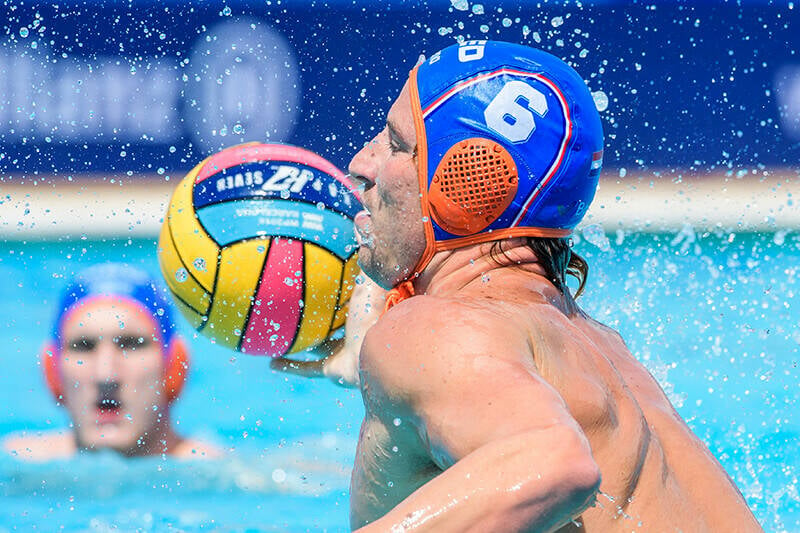


I have been playing in the Dutch league since 2020. For AZC Alphen. We practice every day, but it does not feel as elite sport. The experience is different. Additionally, I have a job. I work with Protime which is involved in personnel management and time-recording. I am trying to find my way there and to work on my career in this respect as well. I have to get used to the transition at times. In elite sport, you receive a quick conformation which turn you take. You put energy into a training, you feel sore the following day and you know: My body is growing. And you are working towards a clear goal. You are always involved in the next big thing. At work, it is more blurred. It is a puzzle now and then: Am I doing well? Are we doing well? You do not receive feedback to these questions that quickly. But I like the challenge very much. You meet new people, you learn new tricks. I enjoy new experiences. And what is nice: my wages are transferred to my bank account each month, perfectly in time. That is quite nice after my water polo career.
In the meantime, I also started my own company. Or in fact, everything is ready to go. I always thought during my elite sport career: I want to do something with the experience and knowledge that I gained. It gives me much motivation to be a guest speaker. Or to give trainings and organize clinics. When I returned to the Netherlands, I decided to do this on the side. However, COVID-19 got in the way. My company’s name is RL6. RL stands for Robin Lindhout. And 6 is my cap number. That number suits me well. It is part of my identity. I started playing with that number because my father used to play with it as well. It was more or less a tribute to him. It truly is my number now.
I am still discovering my story as a speaker. What I have learned during the group program TeamNL@work | Speakers assists me to this end. You receive guidance from experts in their fields and you meet wonderful people, other elite athletes, all of them with their own stories. My story is about someone who has made every effort, but who just didn’t make it. Because the holy grail is missing: participation in the Olympics. I call it ‘the successful loser’. I find it inspiring. I am truly thankful to have participated in this program. I deem it important to improve myself. My studies in psychology also fit within this picture. I would like to be involved in sport psychology in the end. That is the end game. That is my goal.
“When I was fifteen years old, I was involved in sport nearly fulltime. My career in water polo was given an international direction when I was twenty years old. I moved to Croatia and started playing for VK Šibenik. I had to get used to the new situation. There you are, all by yourself, far away from your girlfriend. I would have preferred to call or send text messages the entire day. However, this was so extremely expensive. I paid ten euros for a five MB internet package. What was different: they observed me as a talent in the Netherlands, while I was a foreign player acquisition in Croatia and, therefore, an adult. The expectations were high. You have to develop to this end. Croatia was followed by France, Spain, Greece, Hungary and Italy. What I like about living abroad is that you are part of a different culture. You develop as an individual and you learn how to cope.
In addition to the clubs where I played, I was involved in my international elite sport career. I had a dream to participate in the Olympics someday and to climb the Olympus. We missed this opportunity by just one penalty in 2016. Then, we lost from France during the Olympic qualification tournament with penalties. That hit us hard. It had to happen indeed in Tokyo in 2020. Subsequently, I would scale back my sport career in the Netherlands and time would come to do other things. A societal career, a family life. And then, COVID-19 confronted us. Everything was put on hold and the Olympics were postponed by one year. That final year cost me a lot of energy. The national coach had different ideas about my role. That may be. I was not selected anymore in the end. Very disappointing, but it is all right at the same time.
After more than 250 games for the Netherlands in the men’s national water polo team, Robin Lindhout was not selected for the national team anymore in the spring of 2021. His dream, participating in the Olympics, collapsed. It is a tiny scratch on his prosperous career, which has brought him to many countries in Europe. Now, it is time for his societal career to which he fully commits himself. He wants to meet new people, learn new tricks and gain a lot of knowledge. For instance, he hopes to start as a sport psychologist someday. That is his end game. For now.
Robin Lindhout
“I want to learn, grow and gain knowledge”



the next career step
“I don’t like to sit on my hands, and I want to develop as a person”
Joska le Conté

“Actually doing something for people is rewarding”
Epke Zonderland

“I want to learn, grow and gain knowledge”
Robin Lindhout

“Give yourself some time to find your purpose”
Marloes Keetels





“As an elite athlete, you have lived unique and exceptional experiences. That makes you so special”
“Who else are you other than the elite hockey player?”
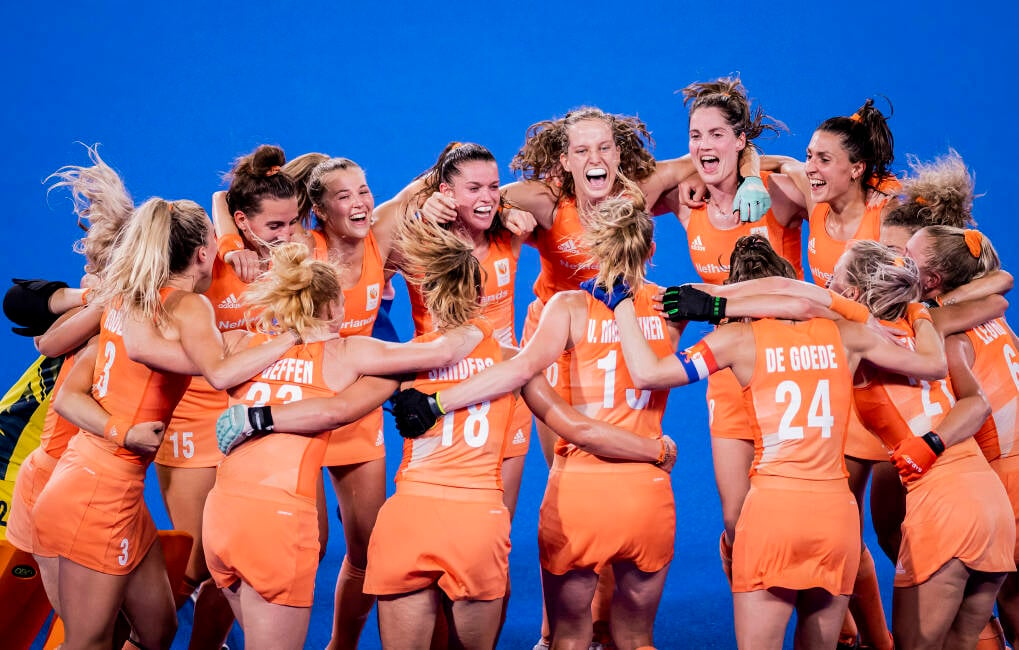


When the news was out that I would end my hockey career, I talked with several hockey players who had completed their career before I did. They all said that I should enjoy doing nothing for a couple of months. And that I should not jump into a new adventure without a second thought. Immediately making the transition from elite sport to a working environment is a big step to take. That’s because you are still in an elite sport mode. Boom, boom, boom, setting and achieving goals. A former team member gave herself quite ambitious goals every day in her first job and nobody had asked this from her. At a certain moment she looked around and saw that others worked at lesser speeds. What am I doing? She thought. I am overdoing it. I recognize the mindset of setting goals.
I aim to renovate the house in Gorinchem now that I bought together with my boyfriend. We can already live there, but a lot has to be done. The plumber thinks we need five years, and we think that we will manage in two years. Besides that I am focusing on a job. I have many interviews. When people know that you quit hockey, then they want to talk to you just like that. New beginnings present themselves. What is nice: I participated in the group program TeamNL@work | Be aware (again) of yourself. It focuses first and foremost on the question who you are as a person. You identify yourself as an elite athlete. But who else are you other than that? What makes you tick? What do you want? You search for answers in a very pleasant and inspiring way. For instance, I did a test that showed that I like to work on strategic matters and to come up with scenarios. Subsequently, you have a look at the matching professions. This way, I found out that I think spatial planning is wonderful. I am going to focus on that now, even though my studies in Change management don’t have to do anything with it.
My final thesis was about ‘The transition of the elite athlete’. So, I am in the middle of it now. I can’t say yet how it will work out for me. I can say, though, that I am not too worried right now. The labor market is promising. I have a job tomorrow if I want, so to speak. I interviewed twelve former elite hockey team members for my thesis. One of my conclusions is, and we already talked about it, that elite athletes are inclined to seek their next goal too fast. Don’t. Allow yourself some time to find your purpose. Something you really like and what feels good. Your first job doesn’t have to be the best shot ever. You must try out things, although many elite athletes have a different view on it. They always have the idea that they are lagging behind: ‘I am already 29 years old and I don’t have any working experience.’ On the contrary, you have lived unique and exceptional experiences as an elite athlete. That makes you so special indeed.”
“I went on vacation after the World Championships. I truly liked it. I didn’t have to do anything. I have been an elite athlete for the past ten years. We received training schedules for the holiday season. I exercised in the gym or I went running. I wanted to stay fit. Sometimes, there was a week without any obligations. But doing nothing didn’t feel right for me. I was an elite athlete, I did everything it took and I could not take a break. Thus, I practiced quite a lot during the holidays. And when you have been practicing quite hard in the morning, you don’t go for a stroll around the city for a couple of hours in the afternoon. Especially because my Achilles tendons are weak. Is this a wise thing to do? I would think. I always took hockey into consideration. You are an elite athlete 24/7. It was more relaxed now. When my boyfriend proposed during breakfast to go mountain biking, I would immediately reply with ‘Yes, great!’. Before that, I wondered whether it would be a wise idea in combination with my training schedule.
After the Tokyo Olympics, I realized that it was enough. I had achieved my ultimate goal: a gold medal at the Olympic Games. I had set hockey as my first priority for five years. That’s the only way for me. You just can’t do it half way. The satisfaction of that medal is wonderful. You worked to this goal together with quite some fun and devotion. Now, I feel like doing other things and I can finally join the Easter brunch with my family. That has never happened yet. We always participated in the European Hockey League with Den Bosch at that time. I don’t play hockey at all anymore for a while. I don’t play hockey in an amateur team either. In your mind you are still an elite hockey player, while the people around you are not. It won’t work out, I know myself. I started playing tennis and I am going to play padel as well. It could be that I will play hockey again in a couple of years. Of course, the game itself is great.
In 2022, Marloes Keetels completed her impressive field hockey career with a gold medal at the World Championships that were partly held in her own country. That was the end. Time for a new beginning. What exactly will happen remains to be seen. Firstly, she will enjoy to do nothing, although she has orientation sessions about her future at regular intervals. At the same time, she works on a home which needs quite some renovations before it’s done. And in a while… the Easter brunch. Finally.
Marloes Keetels
“Give yourself some time to find your purpose”


“I want to learn, grow and gain knowledge”
Robin Lindhout

“Give yourself some time to find your purpose”
Marloes Keetels

“Actually doing something for people is rewarding”
Epke Zonderland

“I don’t like to sit on my hands, and I want to develop as a person”
Joska le Conté

Elite sport is a temporary profession. There comes a moment, scheduled or unforeseen, when athletes move on to their next career step. We support them to this end with individual tailor-made programs, such as career counseling, and various group programs. So as to ensure a smooth transition to a next career step.
the next career step




“We shared a pizza together with the silver medalist. That was it”
Beijing was special. My first Olympic Games. As an athlete, I have not been able to qualify for the Olympics. Now, I was Kimberley Bos’s coach. And of course, you had to face all kinds of COVID-19 precautionary measures. We ate together with the four of us in the Olympic village, at a table which was divided into four parts with transparent sheets. That was not that nice, really, but we did not suffer from COVID-19 either. Let’s just say that the measures have been fruitful. I am very careful myself as well. I went into self-quarantine two weeks before the Games and I did not leave the house anymore. I had home delivery for my groceries. I wanted to avoid running the risk that I would be infected. For myself, but even more for Kimberley and the other athletes. The result was that my boyfriend also had to go into self-quarantine. The choice was: either we don’t see each other or we go into self-quarantine. There was no other option.
It is great to be part of the Olympics as a coach, though it was not quite different from other games. What you did notice, is that everyone was just a bit more tense. And you saw that some athletes were rising above themselves. That is unique for the Olympic Games.
Kimberley performed well. The first run was disappointing. At the same time, it was great to see how she coped. We knew that she could do better. Then it is important to stay calm. We had another look at her run and saw where it went wrong. Then you know: Correct your mistake and improve your result. That’s how it went. After her second run, she had a view of the medals again. It is a perfect track in this respect. It is a track that was just new. You have to try and find out things which causes the differences in the results. The athlete who came in first after the first run, did not earn a medal after all.
When we had earned the bronze medal – the first Dutch skeleton medal ever during the Olympics – we had a blast for just a few moments. I know that I was jumping for joy. Otherwise, we could not do much because of COVID-19. Celebrations with a party were not allowed. We returned to the Olympic village after the race, it was a race in the evening. We arrived in the middle of the night and shared a pizza with Jackie Narracott, who had won the silver medal. That was all. Perhaps we could do it all over again in 2026. We already earned bronze, the silver and gold medals are attractive. But it definitely won’t be easy. You don’t earn gold just like that. It’s also a technical sport. If someone introduces an innovation, then you could be lagging behind all at once. But if you innovate yourself, then you win by a score of 2-0. I am going to do everything it takes to make that happen.”
“Correct your mistake and improve your result”
“I had thought that I would miss it. Training, the races, the gym. That I would think, standing alongside the race track: Hey, I want to ride down myself. It was not that bad at all. Coaching is rewarding to me. It is great to elaborate on the question how someone can improve. And to see this improvement as well. As a coach, I am organizing and planning a lot. That suits me well. When I was active as an athlete, we did not always have enough means for all activities provided by the federation. So you had to arrange things by yourself, such as traveling. I went to team captain meetings myself as well. It was not ideal for me as an elite athlete, but I learned a lot from it. It is an asset for me now. Just like my experience as policy advisor with the Royal Dutch Motorcycle Association.
I started there upon completion of my studies via Goud op de Werkvloer (Gold at Work), a project that was launched by NOC*NSF (the Dutch Olympic Committee*Dutch Sport Federation), Randstad and Sport & Zaken (Sport & Business), so as to establish more positions with organizations that value elite sport for (former) elite athletes. I had completed my studies and I wanted to have a job in addition to training, with a sport federation. I started with the Royal Dutch Motorcycle Association. They had registered as an employer that values elite sport. Such an employer cares about you as an elite athlete. They understand that you cannot be present each day from nine to five. I had made arrangements that I could focus on skeleton during the winter season and that I would be working with the Association during the summer. In the meantime, I also completed a master’s degree in Management Science. I don’t like to sit on my hands and I want to develop as a person.
Joska le Conté became a Dutch champion in pole vault five times in several youth categories. But when she came into contact with the sliding sport, she exchanged the summer for the winter and she chose the skeleton. Riding her skeleton down the track, she was freaking fast. She did not fulfil her dream to make it to the Olympics by just an inch. She did succeed indeed as a coach and assisted Kimberley Bos on her way to bronze in Beijing.
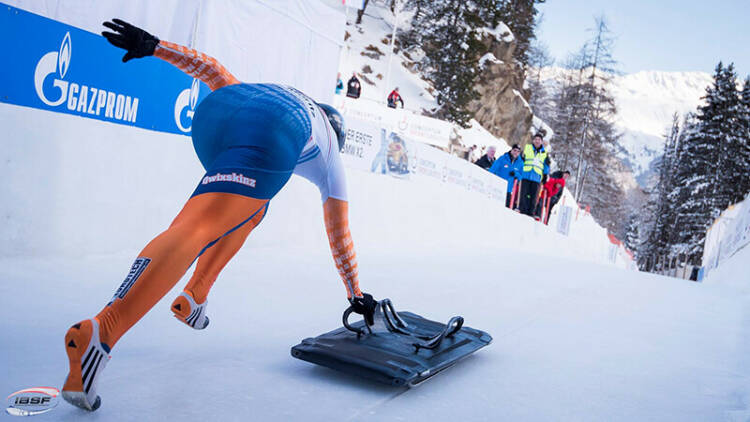
Date and place of birth
29 September 1987, Zeist
Sport
Skeleton (retired as athlete in the meantime)
Education
- Sport, Management & Business
- Master’s degree in Management Science
Working experience
- Team leader for the grassroot coaches in the neighborhood
- Owner of Holland Sport Support
- Policy advisor Royal Dutch Motorcycle Association
- Event manager
- Coach of skeleton athlete Kimberly Bos
- Organizational affairs for the Netherlands Bobsleigh and Skeleton Federation
Societal engagement
Training/coaching
Participated in TeamNL@work program
TeamNL@work | Process management
Highlights in sport
- Participation in eight World Championships (came in fifteenth in 2015 and 2016)
- Participation in twelve European Championships (came in fifth in 2021, seventh in 2016)
- Participation in eight World Cups
Special characteristics
- Olympic bronze medalist in 2021 as coach for Kimberley Bos
- Set up her own company
“I don’t like to sit on my hands, and I want to develop as a person”
Joska le Conté
the next career step






The next career step
“Participating in a large tournament as a sport physician is very appealing to me”
“If I worked less hours and took a longer time to finish, that was all right”
I did already have this conviction in choosing an academic program in addition to sport. It turned out to be the study of medicine. I actually wanted to mean something to people. I liked the enjoy of operating, working with your hands. I knew it was a difficult study in the combination with elite sport, because of the obligatory attendance and the many internships that you have. But there was no alternative. This is what I wanted. My days were fully booked: training, studying, training, studying, sleeping. I was involved in training for thirty hours a week easily. And another thirty hours with studying. I never considered it as cumbersome. I wanted to do this very much myself. You have so much energy at that age. You can handle a lot indeed. And it is all right as well if you make progress a bit slower than regular students.
In the end, I completed my studies in eleven years. I was most delayed with my clinical apprenticeships. Those were quite difficult to schedule in combination with elite sport. You are physically active with the clinical apprenticeships like you are with gymnastics. The combination is just a bit too much. Especially before important competitions and tournaments. Theory is just a matter of learning the study material, which was a much better combination with elite sport. At the same time, I have to add that I received a lot of understanding. Both from my study program and the physicians with whom I worked together. It was never an issue if I worked less hours and took a longer time to finish. They often observed my elite sport planning and they considered this in drafting the work schedules. That was marvelous.
In the end, I will not pursue a career as a surgeon. I am going to specialize in sport medicine. This program primarily consists of gaining working experience in several departments, such as cardiology, pulmonary medicine and orthopedics. I am looking forward to it very much. It is a very broad education which gives you a lot of options. What fascinates me about sport medicine is prevention. Practicing sport and being physically active play an important role in this respect and provide for many advantages in health. Elite athlete guidance could also be an option. Participating in a large tournament as a sport physician is very appealing to me. But that may be something at a later stage. And the physiological aspect of sport medicine fascinates me as well.
I consider it important to enjoy what I am doing. In elite sport, it was about your development. Improving myself step by step and doing everything it takes to this end. In my new career as a sport physician, I am going to help others to take small steps. For instance, to recover well and fast after an injury, so that one can quickly start again. That is rewarding. The future will tell what practice will bring me. The transition to my next career still has to begin, actually. Coping with adversity, setting targets, planning, being patient. It cannot all take place in one day. I am lucky to be around for a while.”
“When you stay at home, it may start nagging you. What if I had gone after all? Now I know that I could not have done anything else in Tokyo. I did my utmost. I was satisfied with my performance. I even had an euphoric moment afterwards. As if I had won a competition. I think I was relieved that I could finish my career in elite gymnastics with dignity. When I look back, I consider London 2021 as the highlight. I gave my best performance ever there, with a combination of three flight elements in a row. That was an exceptional performance. Everyone knew I was going to do this, but would I succeed? You could feel the tension. It is wonderful that you accomplish exactly that at this particular moment.
What has helped me was a crucial mistake during the Olympic finals in Beijing four years before. That was a turning point in my career. It had gone quite all right during training until then, but it never fully showed during the competition. It did not show either in those finals. I was performing too conservative and I was hesitating whether I would carry out a difficult combination of jumps. I did not take that chance. Subsequently, my hands slipped from the horizontal bar. It was not the performance which I had in mind. I thought: This is not going to happen again. I have benefited quite a lot from this mindset during the remainder of my elite sport career. When you do something, do so with a firm conviction.
His elite sport career came to an end in Tokyo. Epke Zonderland gave his last performance there. He became the world champion in the men’s horizontal bar three times, and he was the Olympic champion in London in 2012. This day will always be part of the Dutch collective memory, both thanks to the historic performance and the commentary in this respect – “And he is standing still!” Time has come for a new career now. He will specialize as a sport physician upon completion of this degree in medicine. He enjoys helping people, actually meaning something to someone.
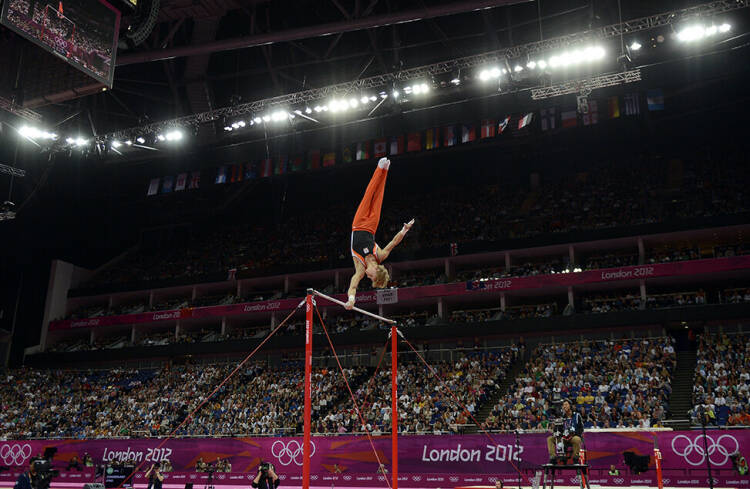
Date and place of birth
16 April 1986, Lemmer
Sport
Gymnastics (retired)
Education
Medicine
Working experience
Employed with sport medicine Friesland in Sport City Heerenveen
Societal engagement
Ambassador for 100%DopeFree, Ronald McDonald Hoeve and Sports For Children
Highlights in sport
- Olympic gold on horizontal bar in 2012
- World champion on horizontal bar in 2013, 2014 and 2018
- European champion on horizontal bar in 2011, 2014 and 2019
- Eighteen times gold on horizontal bar at the World Cup
Special characteristics
- Royal award in 2012 (Order of Orange-Nassau)
- Male Athlete of the Year in 2009, 2011, 2012 and in 2013
- A wax figure of Epke is located at Madame Tussauds
- Epke’s preparations for the 2012 London Olympics were recorded in the NOS-documentary Operatie Zonderland (Operation Zonderland) (for the documentary, click here)
“Actually doing something for people is rewarding”
Epke Zonderland






The next career step
“I think it is important to develop myself”
“At work, you miss the quick confirmation which direction will be taken”
I have been playing in the Dutch league since 2020. For AZC Alphen. We practice every day, but it does not feel as elite sport. The experience is different. Additionally, I have a job. I work with Protime which is involved in personnel management and time-recording. I am trying to find my way there and to work on my career in this respect as well. I have to get used to the transition at times. In elite sport, you receive a quick conformation which turn you take. You put energy into a training, you feel sore the following day and you know: My body is growing. And you are working towards a clear goal. You are always involved in the next big thing. At work, it is more blurred. It is a puzzle now and then: Am I doing well? Are we doing well? You do not receive feedback to these questions that quickly. But I like the challenge very much. You meet new people, you learn new tricks. I enjoy new experiences. And what is nice: my wages are transferred to my bank account each month, perfectly in time. That is quite nice after my water polo career.
In the meantime, I also started my own company. Or in fact, everything is ready to go. I always thought during my elite sport career: I want to do something with the experience and knowledge that I gained. It gives me much motivation to be a guest speaker. Or to give trainings and organize clinics. When I returned to the Netherlands, I decided to do this on the side. However, COVID-19 got in the way. My company’s name is RL6. RL stands for Robin Lindhout. And 6 is my cap number. That number suits me well. It is part of my identity. I started playing with that number because my father used to play with it as well. It was more or less a tribute to him. It truly is my number now.
I am still discovering my story as a speaker. What I have learned during the group program TeamNL@work | Speakers assists me to this end. You receive guidance from experts in their fields and you meet wonderful people, other elite athletes, all of them with their own stories. My story is about someone who has made every effort, but who just didn’t make it. Because the holy grail is missing: participation in the Olympics. I call it ‘the successful loser’. I find it inspiring. I am truly thankful to have participated in this program. I deem it important to improve myself. My studies in psychology also fit within this picture. I would like to be involved in sport psychology in the end. That is the end game. That is my goal.
“When I was fifteen years old, I was involved in sport nearly fulltime. My career in water polo was given an international direction when I was twenty years old. I moved to Croatia and started playing for VK Šibenik. I had to get used to the new situation. There you are, all by yourself, far away from your girlfriend. I would have preferred to call or send text messages the entire day. However, this was so extremely expensive. I paid ten euros for a five MB internet package. What was different: they observed me as a talent in the Netherlands, while I was a foreign player acquisition in Croatia and, therefore, an adult. The expectations were high. You have to develop to this end. Croatia was followed by France, Spain, Greece, Hungary and Italy. What I like about living abroad is that you are part of a different culture. You develop as an individual and you learn how to cope.
In addition to the clubs where I played, I was involved in my international elite sport career. I had a dream to participate in the Olympics someday and to climb the Olympus. We missed this opportunity by just one penalty in 2016. Then, we lost from France during the Olympic qualification tournament with penalties. That hit us hard. It had to happen indeed in Tokyo in 2020. Subsequently, I would scale back my sport career in the Netherlands and time would come to do other things. A societal career, a family life. And then, COVID-19 confronted us. Everything was put on hold and the Olympics were postponed by one year. That final year cost me a lot of energy. The national coach had different ideas about my role. That may be. I was not selected anymore in the end. Very disappointing, but it is all right at the same time.
After more than 250 games for the Netherlands in the men’s national water polo team, Robin Lindhout was not selected for the national team anymore in the spring of 2021. His dream, participating in the Olympics, collapsed. It is a tiny scratch on his prosperous career, which has brought him to many countries in Europe. Now, it is time for his societal career to which he fully commits himself. He wants to meet new people, learn new tricks and gain a lot of knowledge. For instance, he hopes to start as a sport psychologist someday. That is his end game. For now.
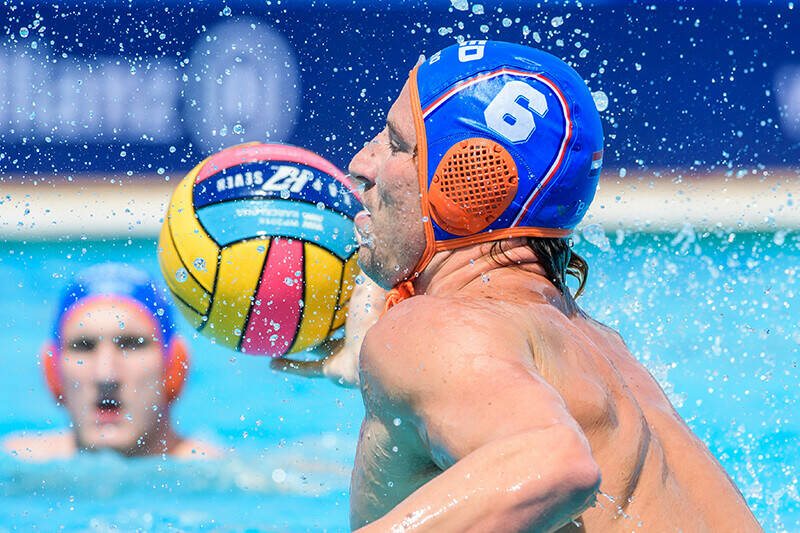
Date and place of birth
25 October 1990, Eindhoven
Sport
Water polo (retired in the meantime as an international elite athlete)
Education
Psychology
Working experience
- Junior account manager at Protime
- Account manager back office at Dyanix
- Self-employed professional
Participated in TeamNL@work program
- TeamNL@work | Speaker
- TeamNL@work | Entrepreneurship, an opportunity for you?
Highlights in sport
- Participated in the European Championships in 2012, 2016, 2018 and 2020
- Was top scorer on various occasions
- Water polo talent during the 2008-2009 season
- Played more than 250 international matches
- 500+ goals, debut in the summer of 2008 (at the age of seventeen)
Special characteristics
- Father of daughter Sofie
- Documentary about him and the Dutch water polo team The Underdogs (click here for the documentary)
“I want to learn, grow and gain knowledge”
Robin Lindhout






“As an elite athlete, you have lived unique and exceptional experiences. That makes you so special”
“Who else are you other than the elite hockey player?”
When the news was out that I would end my hockey career, I talked with several hockey players who had completed their career before I did. They all said that I should enjoy doing nothing for a couple of months. And that I should not jump into a new adventure without a second thought. Immediately making the transition from elite sport to a working environment is a big step to take. That’s because you are still in an elite sport mode. Boom, boom, boom, setting and achieving goals. A former team member gave herself quite ambitious goals every day in her first job and nobody had asked this from her. At a certain moment she looked around and saw that others worked at lesser speeds. What am I doing? She thought. I am overdoing it. I recognize the mindset of setting goals.
I aim to renovate the house in Gorinchem now that I bought together with my boyfriend. We can already live there, but a lot has to be done. The plumber thinks we need five years, and we think that we will manage in two years. Besides that I am focusing on a job. I have many interviews. When people know that you quit hockey, then they want to talk to you just like that. New beginnings present themselves. What is nice: I participated in the group program TeamNL@work | Be aware (again) of yourself. It focuses first and foremost on the question who you are as a person. You identify yourself as an elite athlete. But who else are you other than that? What makes you tick? What do you want? You search for answers in a very pleasant and inspiring way. For instance, I did a test that showed that I like to work on strategic matters and to come up with scenarios. Subsequently, you have a look at the matching professions. This way, I found out that I think spatial planning is wonderful. I am going to focus on that now, even though my studies in Change management don’t have to do anything with it.
My final thesis was about ‘The transition of the elite athlete’. So, I am in the middle of it now. I can’t say yet how it will work out for me. I can say, though, that I am not too worried right now. The labor market is promising. I have a job tomorrow if I want, so to speak. I interviewed twelve former elite hockey team members for my thesis. One of my conclusions is, and we already talked about it, that elite athletes are inclined to seek their next goal too fast. Don’t. Allow yourself some time to find your purpose. Something you really like and what feels good. Your first job doesn’t have to be the best shot ever. You must try out things, although many elite athletes have a different view on it. They always have the idea that they are lagging behind: ‘I am already 29 years old and I don’t have any working experience.’ On the contrary, you have lived unique and exceptional experiences as an elite athlete. That makes you so special indeed.”
“I went on vacation after the World Championships. I truly liked it. I didn’t have to do anything. I have been an elite athlete for the past ten years. We received training schedules for the holiday season. I exercised in the gym or I went running. I wanted to stay fit. Sometimes, there was a week without any obligations. But doing nothing didn’t feel right for me. I was an elite athlete, I did everything it took and I could not take a break. Thus, I practiced quite a lot during the holidays. And when you have been practicing quite hard in the morning, you don’t go for a stroll around the city for a couple of hours in the afternoon. Especially because my Achilles tendons are weak. Is this a wise thing to do? I would think. I always took hockey into consideration. You are an elite athlete 24/7. It was more relaxed now. When my boyfriend proposed during breakfast to go mountain biking, I would immediately reply with ‘Yes, great!’. Before that, I wondered whether it would be a wise idea in combination with my training schedule.
After the Tokyo Olympics, I realized that it was enough. I had achieved my ultimate goal: a gold medal at the Olympic Games. I had set hockey as my first priority for five years. That’s the only way for me. You just can’t do it half way. The satisfaction of that medal is wonderful. You worked to this goal together with quite some fun and devotion. Now, I feel like doing other things and I can finally join the Easter brunch with my family. That has never happened yet. We always participated in the European Hockey League with Den Bosch at that time. I don’t play hockey at all anymore for a while. I don’t play hockey in an amateur team either. In your mind you are still an elite hockey player, while the people around you are not. It won’t work out, I know myself. I started playing tennis and I am going to play padel as well. It could be that I will play hockey again in a couple of years. Of course, the game itself is great.
In 2022, Marloes Keetels completed her impressive field hockey career with a gold medal at the World Championships that were partly held in her own country. That was the end. Time for a new beginning. What exactly will happen remains to be seen. Firstly, she will enjoy to do nothing, although she has orientation sessions about her future at regular intervals. At the same time, she works on a home which needs quite some renovations before it’s done. And in a while… the Easter brunch. Finally.
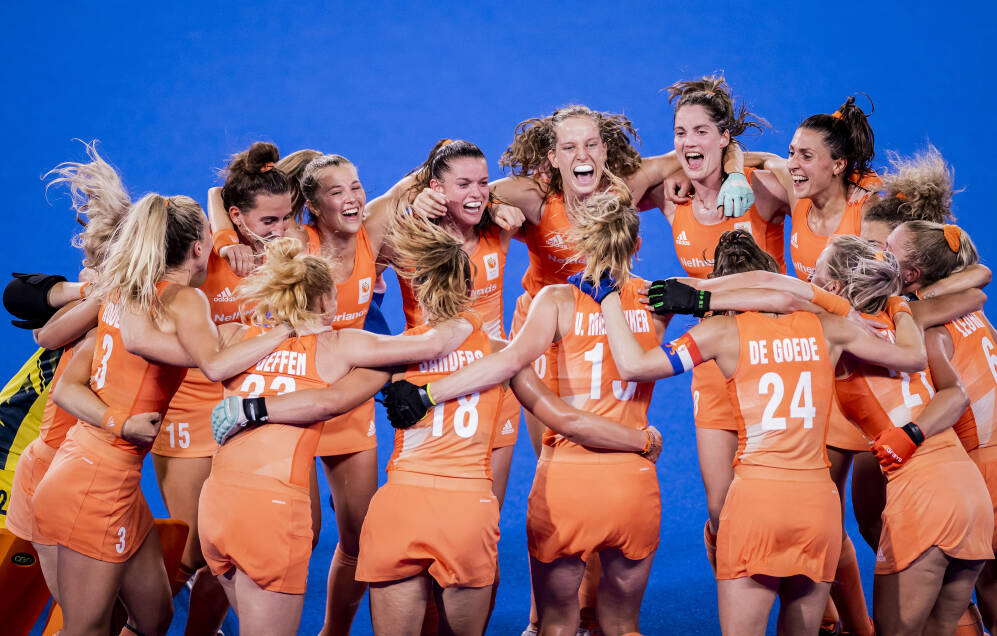
Date and place of birth
4 May 1993, Schijndel
Sport
Field hockey (retired)
Education
Master Organizational Change & Consulting
Participated in TeamNL@work program
TeamNL@work | Be aware (again) of yourself
Highlights in sport
- Olympic gold in Tokyo 2020
- World champion in 2014 and 2018
- Triple European champion (2017, 2019, 2021)
Special characteristics
Participated in the Dutch ladies hockey team in a total number of 176 international matches between 2013 and 2022
“Give yourself some time to find your purpose”
Marloes Keetels
The next career step








